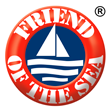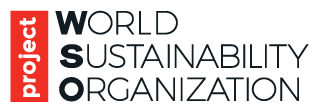
Geomar scientist Dr. Rainer Froese and Prof. Alexander Proelss of the German University of Trier, assessed the activity of certifying organizations like FOS and MSC and the reliability of their certification process in the study “Evaluation and Legal Assessment of Certified Seafood”. This study was supported in part by the Future Ocean Excellence Cluster 80, funded by the German Research Foundation on behalf of the German Federal State and State Governments.
The study concludes that it is reasonable to buy certified seafood, because the percentage of moderately exploited, healthy stocks is 3-4 times higher in certified than in non-certified seafood.
“By buying seafood from these healthy stocks, consumers support sustainable fisheries, meaning that they can eat their fish and have it, too. So, shall consumers shopping for seafood still buy certified products? Yes!”
The study also produces some suggestions for the good use of certification programs: “In the certification criteria, give more weight to the status of the stock and close any loopholes. Especially MSC would be well advised to drastically simplify their assessment procedure and prescribe much shorter, highly standardized assessment reports where status of the stocks and fishing pressure can be easily found and verified.”
According to the study assessment logics, some of the FOS fisheries approvals were not based on the most official and updated stock status data. The study also criticized the Marine Stewardship Council: “In the case of MSC, the assessors are for-profit companies which are chosen and paid by the fisheries to be assessed. After reading through over 100 assessments and related documents, we could not help the feeling that these assessors were biased towards bending the rules in favor of their clients. […]. Also, it seemed to us that MSC itself, who may participate in the assessment process as one of the stakeholders, did not make efficient use of this opportunity to point out cases where their criteria were not applied correctly by the assessors.”
“FOS welcomes this external review”, comments Paolo Bray, founder and Director of Friend of the Sea NGO. “Although we do not agree with every single assessment, we decided to critically review all stocks not marked as green and remove FOS certifications if necessary.” FOS has meanwhile de-certified three stocks that were marked red in this study. This would bring their share of ‘green’ stocks to 88% in Figure 2.
For more information please contact:
Paolo Bray – Director – Friend of the Sea
Friend of the Sea is an international non-profit certification program for products from sustainable fisheries and aquaculture. Certified products are fished from not overexploited nor IUCN Redlisted stocks and with selective methods which do not impact the seabed.



